In the rainforest of Costa Rica, students learn permaculture and regenerative agroforestry
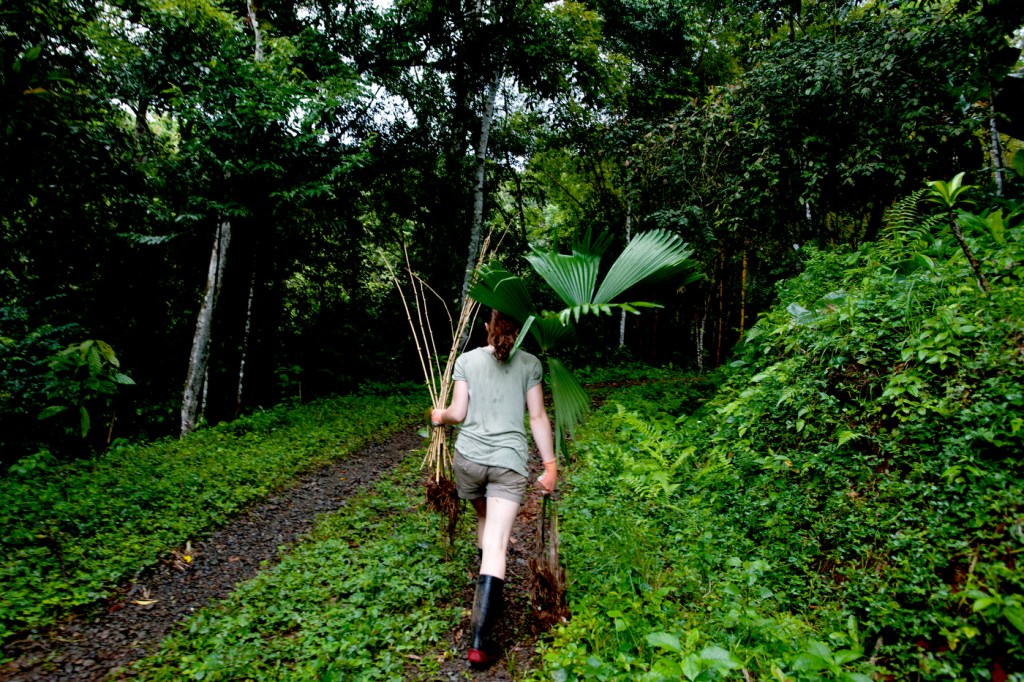
LANAS DE PURISCAL, Costa Rica—Jessica Slevin pushes a wheelbarrow full of farming equipment along a muddy jungle trail. She is on her way to planting her first banana sapling.
“I’ve spent so much time digging things up, it feels good to finally put something back into the ground,” says Slevin, a conservation science major at Northeastern.
Slevin is among a half-dozen Northeastern students doing co-ops at a farm nestled in the mountainous rainforest 25 miles southwest of the capital, San Jose. The former pig farm and cattle ranch was bought in 2006 by Joshua Hughes and a small group of investors. Together, they transformed the nearly barren landscape into VerdEnergia Pacifica—a regenerative agroforestry project and eco-education center. A native of Oregon and the son of a mechanic, Hughes founded VerdEnergia with the hopes of starting a biodiesel operation. The goals of the organization have since evolved, but the core mission of reforestation and sustainable living have remained unchanged.
The team at VerdEnergia is working with nature to create a managed ecosystem that fulfills human needs while simultaneously retaining the ecological benefits of the wild— such as drawing down carbon, stabilizing soils, and providing habitat for wildlife. Hughes estimates that 5,000 people have worked at the farm over the past 13 years, including Slevin and her fellow co-ops.
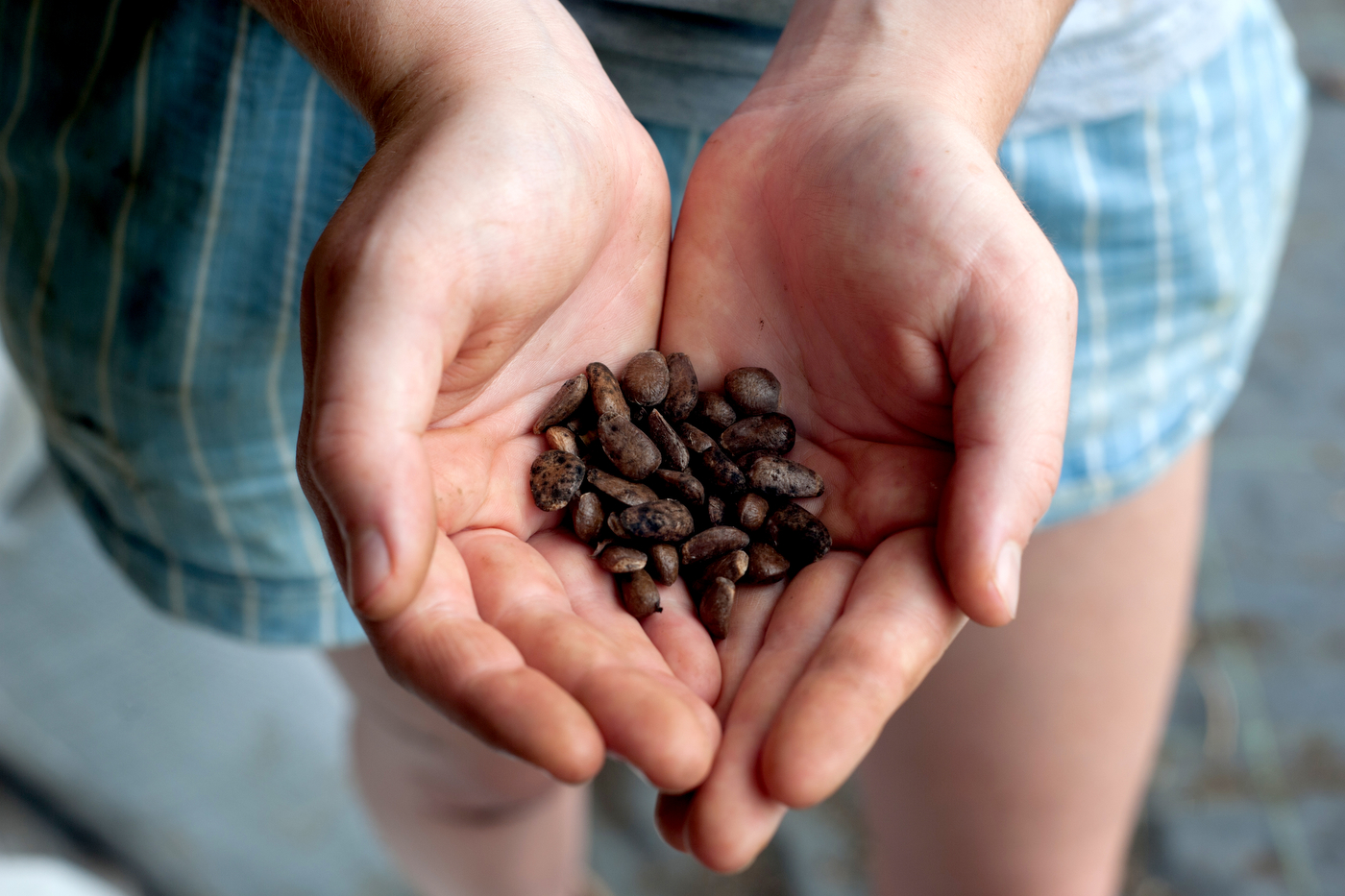
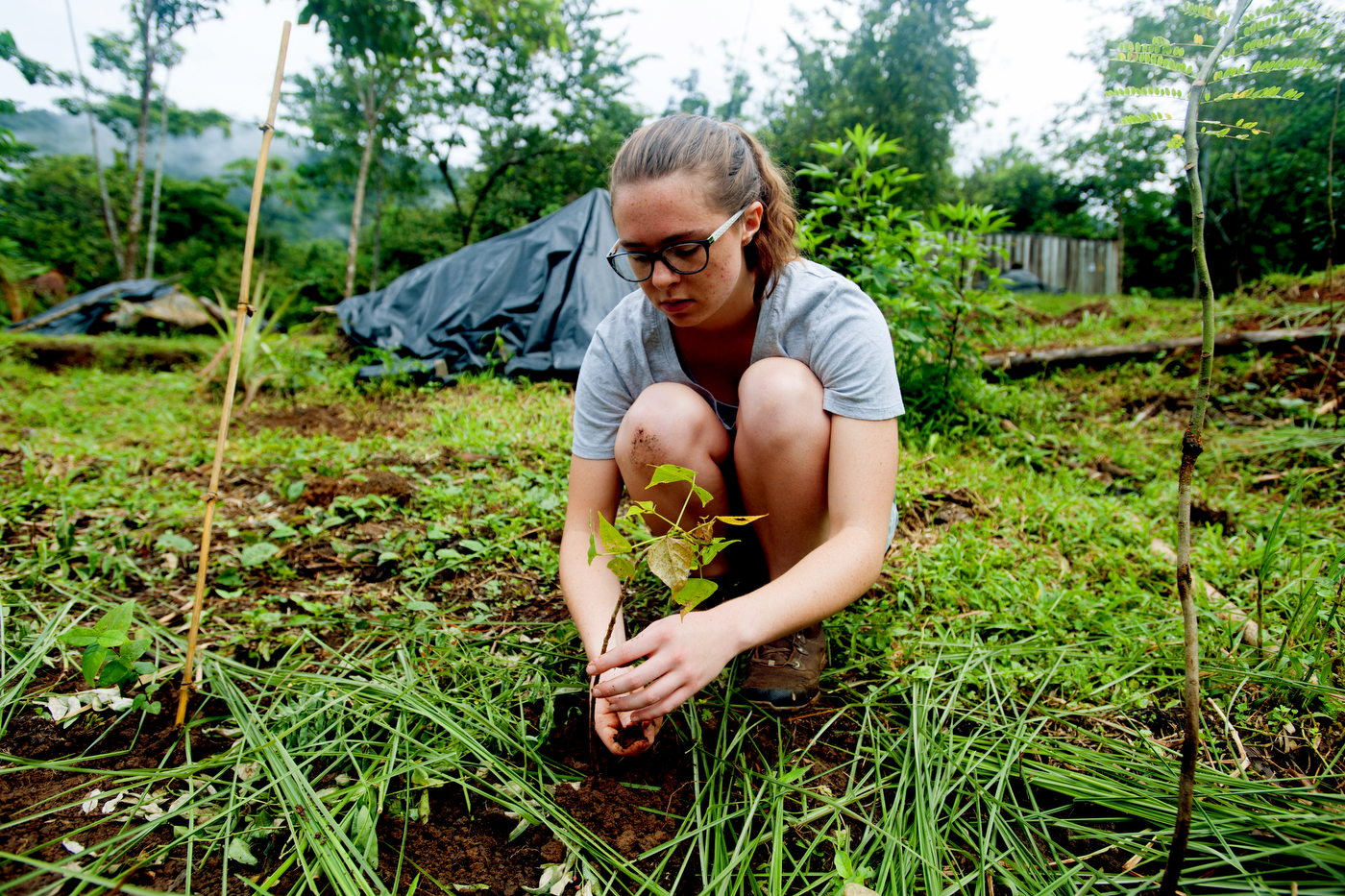
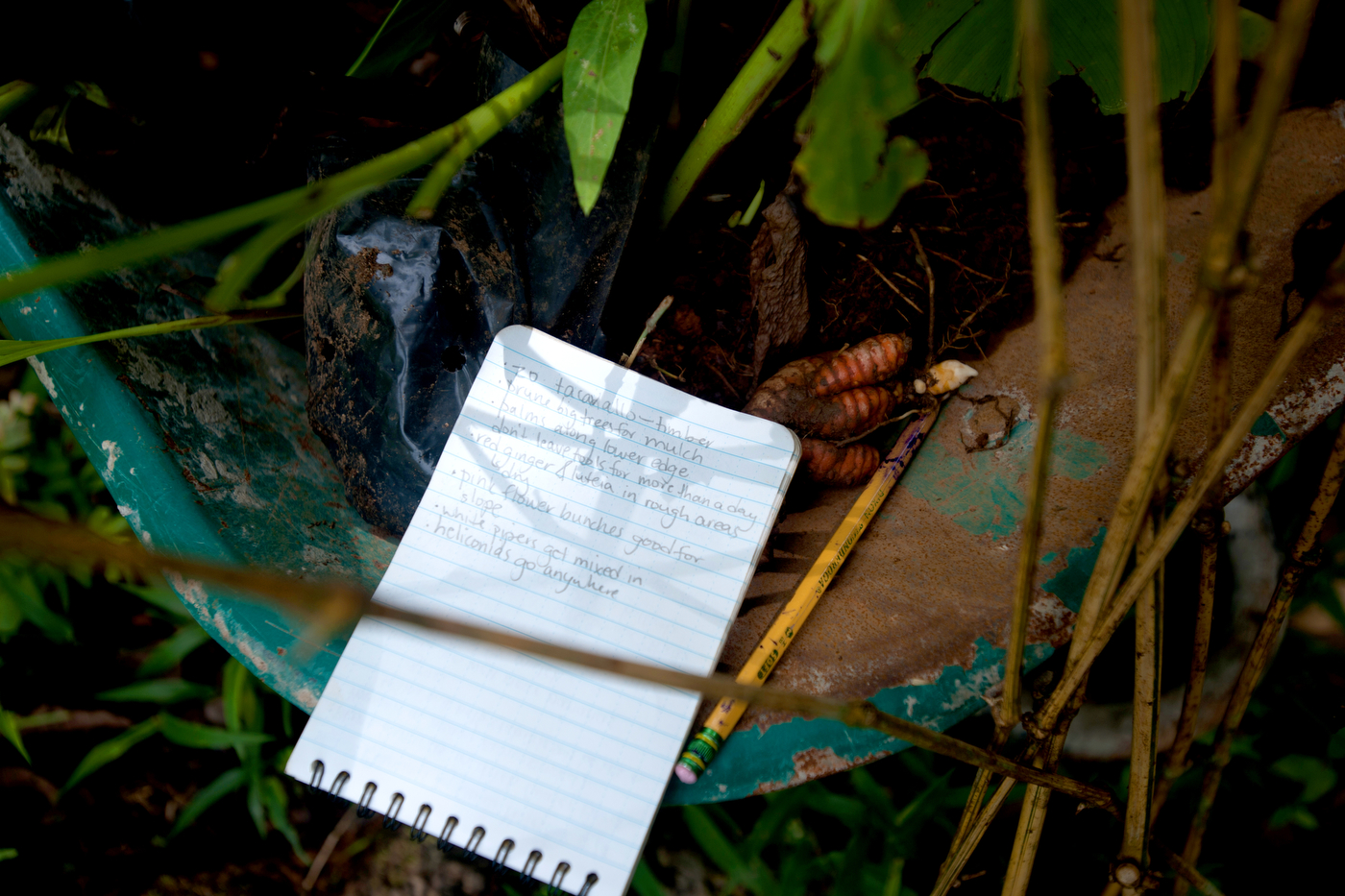
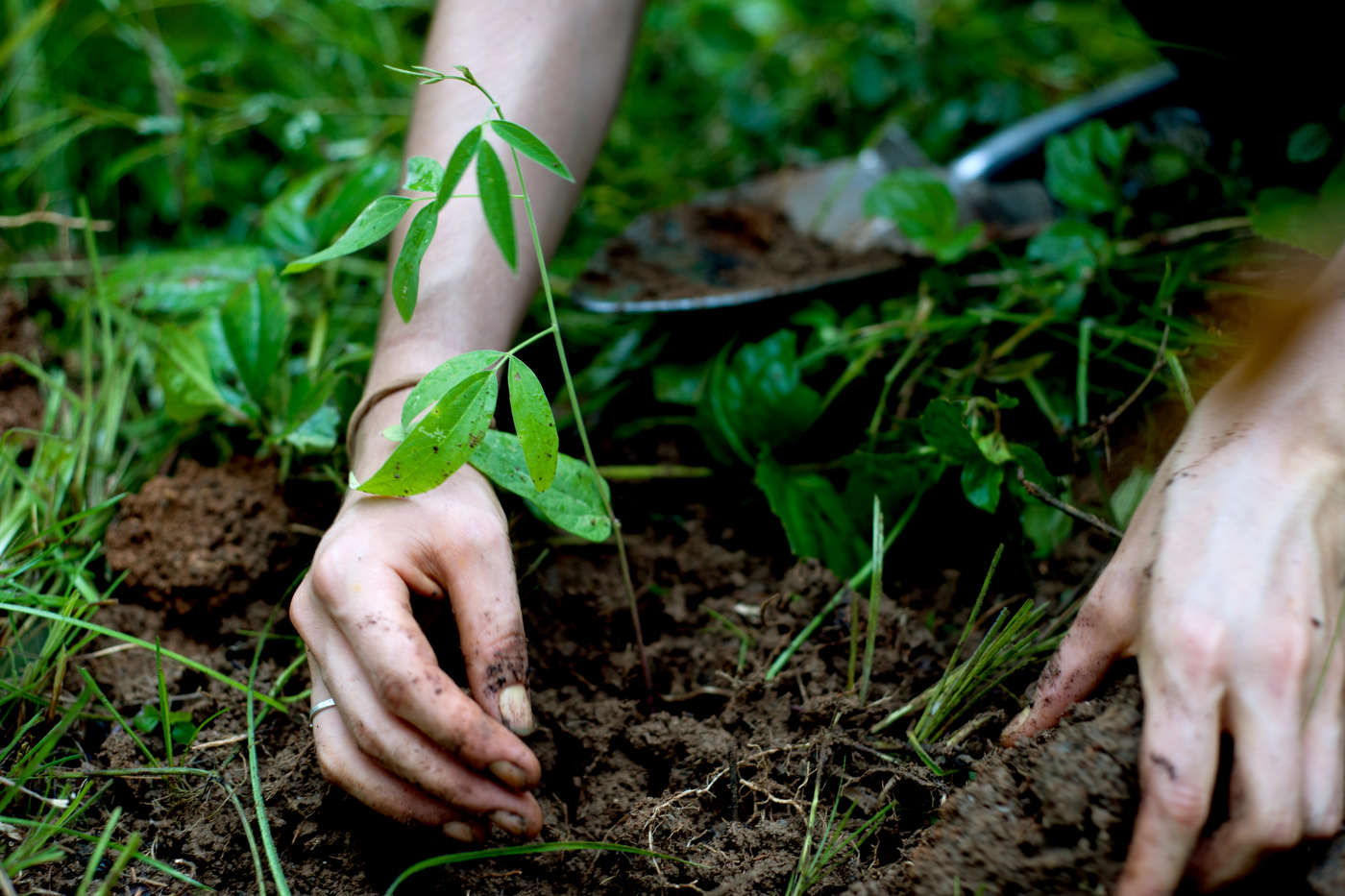
At VerdEnergia, farm systems are designed to match the specific natural characteristics of the ecosystem. These kinds of systems tend to be more self supporting than conventional agriculture. In regenerative farming systems like the ones implemented at VerdEnergia, it is understood that there is no such thing as “waste” or “trash.” Instead, organic “wastes,” like leaf mulch, become fertilizer for their neighboring plants. This mimics naturally occurring cycles and helps eliminate dependence on unsustainable and destructive inputs like toxic fertilizers and pesticides.
“Our approach is based on a deep understanding of nature and the traditional practices of some indigenous cultures who stewarded ecosystems sustainably for thousands of years. We use methods from the schools of thought called permaculture, agroecology, and regenerative agroforestry,” says Marc Tobin, VerdEnergia’s education director. Tobin and Steven Ganister, the land manager and lead intern instructor, work together to educate and train interns onsite as well as in the classroom.
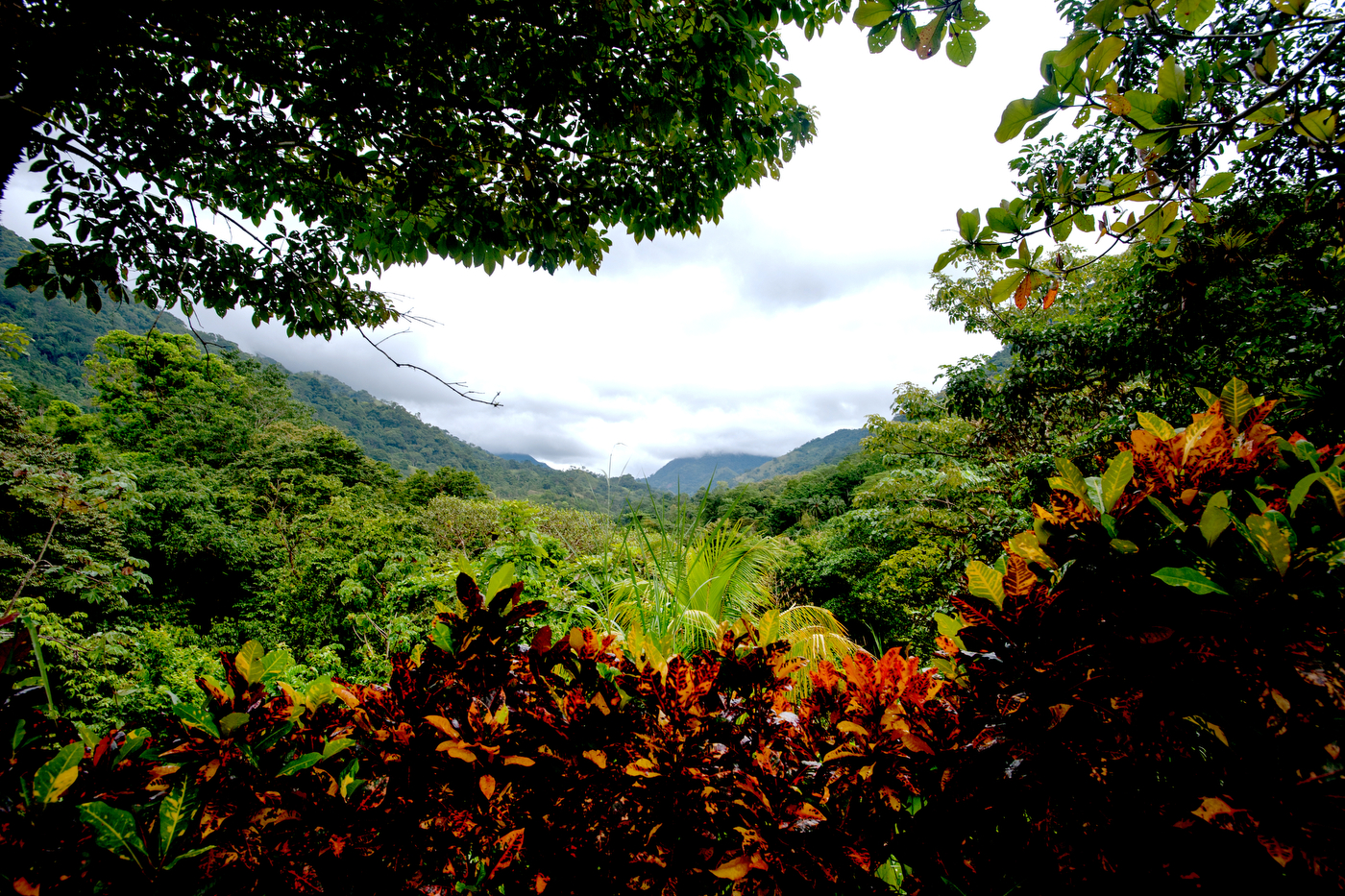
A view of rainforest from VerdEnergia. Photo by Hiroko Tanaka for Northeastern University
A major part of the students’ experience at VerdEnergia is to pursue a personal project based on this school of thought.
Jake Costellano, an environmental studies student at Northeastern, was hoping to bake while he was at the farm, but there was no conventional oven. Now his project is to build one from scratch. He’s using the rocket stove design, centered around an insulated tunnel where heat from burning wood is shot directly into the oven. Rocket ovens are popular with permaculture advocates not just for their efficiency, but also because they can be largely built with natural materials. Costellano’s design uses clay, sand and dirt gathered from around the farm.
This kind of individual action toward the larger goal of changing the way society builds and sustains itself is at the heart of the permaculture philosophy.
“Our stance is that both are necessary and go hand in hand,” says Tobin. “And this is not just something we say, but something we model, through making our daily lives more sustainable and in tune with nature, while also innovating in scalable areas like financial investment and product development models for ecosystem regeneration. Therefore, our interns emerge prepared to live more sustainably in their personal lives, but also to advance professionally in the many growing sustainability-related fields.”
Interns have an opportunity to contribute to projects overseen by Blacksheep Regenerative Resource Management, which processes rainforest crops like turmeric and cacao into value-added products, and grants international market access to a number of small farms across Costa Rica. Because VerdEnergia works in conjunction with Blacksheep, interns have access to over 100 acres of agroforestry land in various stages of reforestation, as well as a more global view into regenerative agriculture and regenerative supply chains.
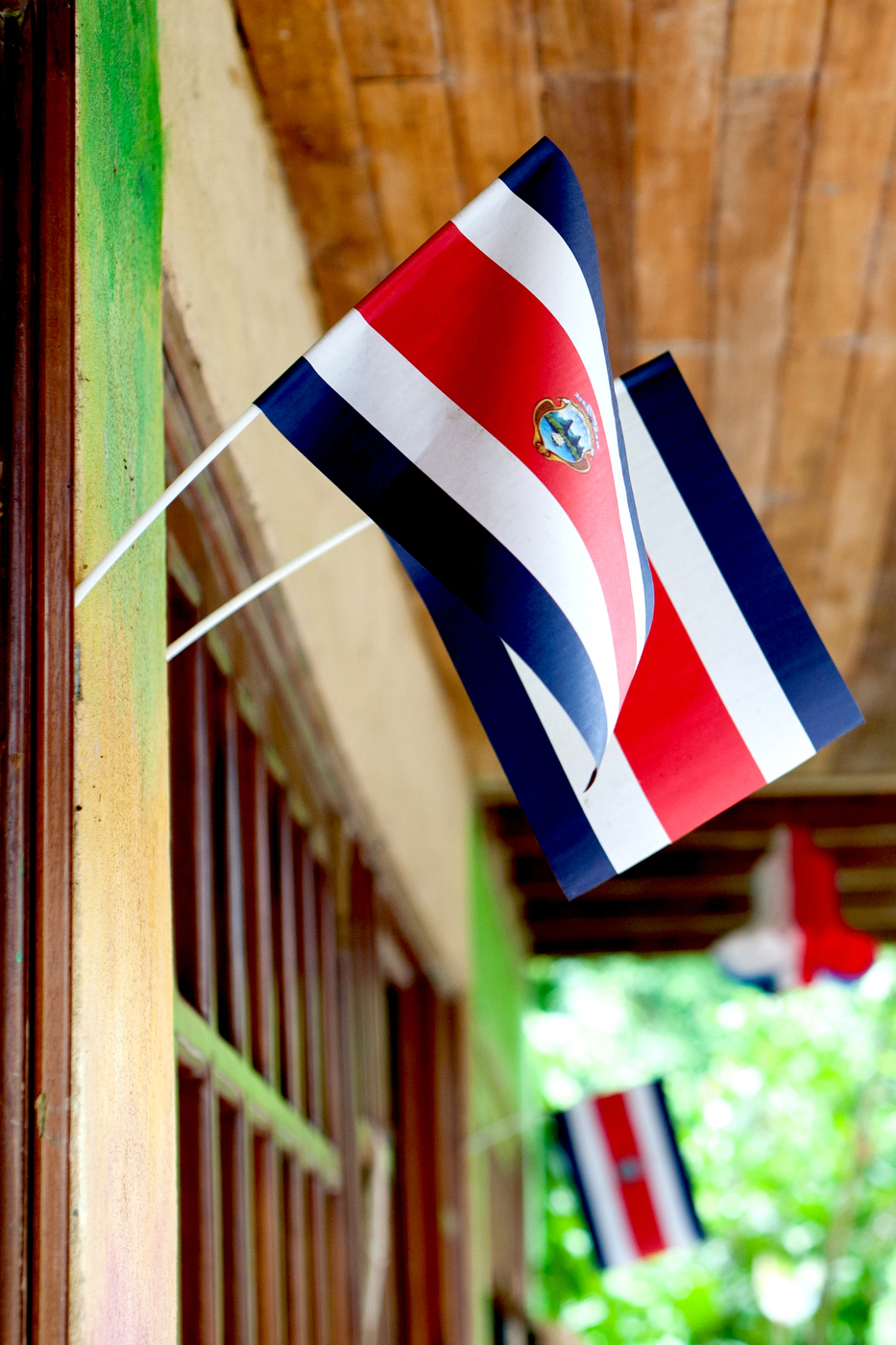
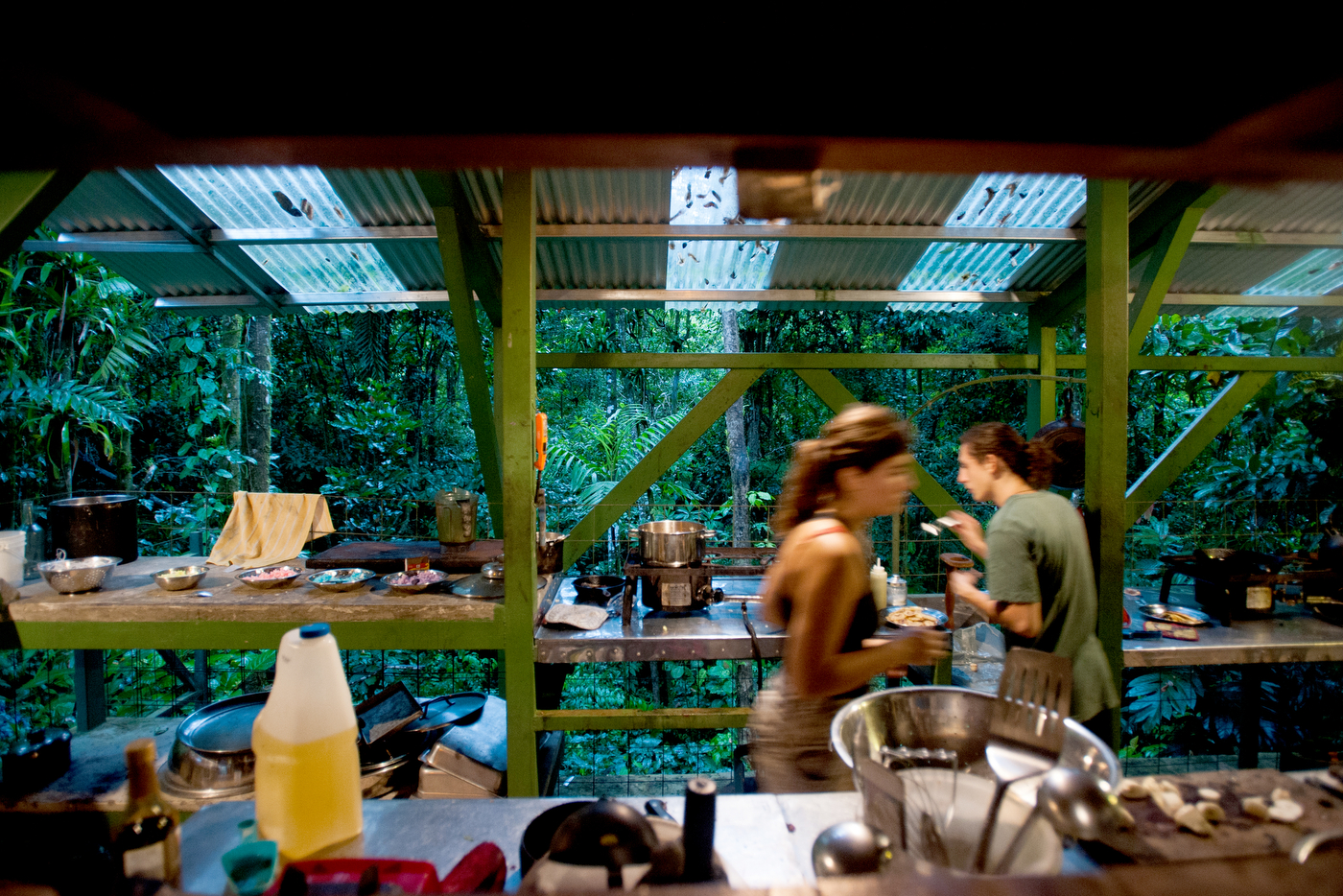
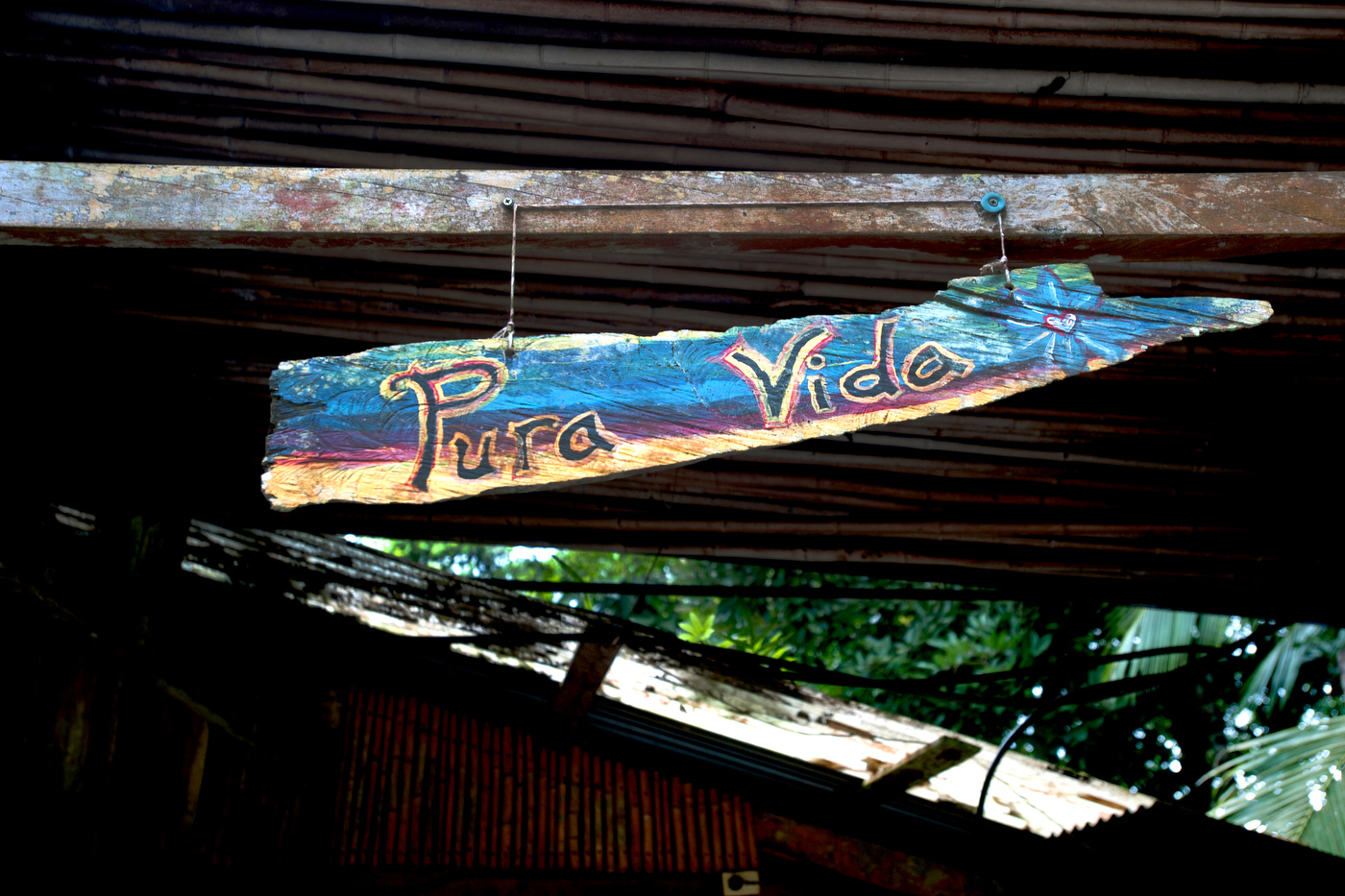
At the farm, there is evidence of visitors, volunteers, students, and interns-past all around. The door of the main farmhouse is plastered with stickers from around the world. Inside, near a mural of the jungle, is a large picnic table within an expansive kitchen adorned with bunches of dangling bananas.
“This ‘farm to table’ approach is healthy, delicious, exciting, and a complete paradigm change,” says Tobin.
“Because rather than creating a menu and then sourcing food for it, we need to continually monitor what the land is providing and creatively design meals around this natural abundance,” he says. “A major part of the internship is the interns learning to cook for the entire group, and it has been remarkable how quickly they became adept at this. Knowing how to improvisationally prepare delicious meals from natural whole foods is a skill that will surely benefit them throughout their lives, personally and potentially professionally.”
A small path leads to a pool that sparkles with multi-colored tiles and a hard-wood recreation room for yoga and ping-pong. Further down the path are the dorms, where each bed is surrounded by its own white mosquito netting. There’s still the occasional scream when students run into a large spider or flying bug, but they’ve mostly grown used to sharing space with their jungle neighbors.
While it was a bit of a shock at first, Slevin says she quickly grew to enjoy farm life. She appreciates the outdoors and the nights that are calm, as well as the thunderstorms that so violently renew the landscape.
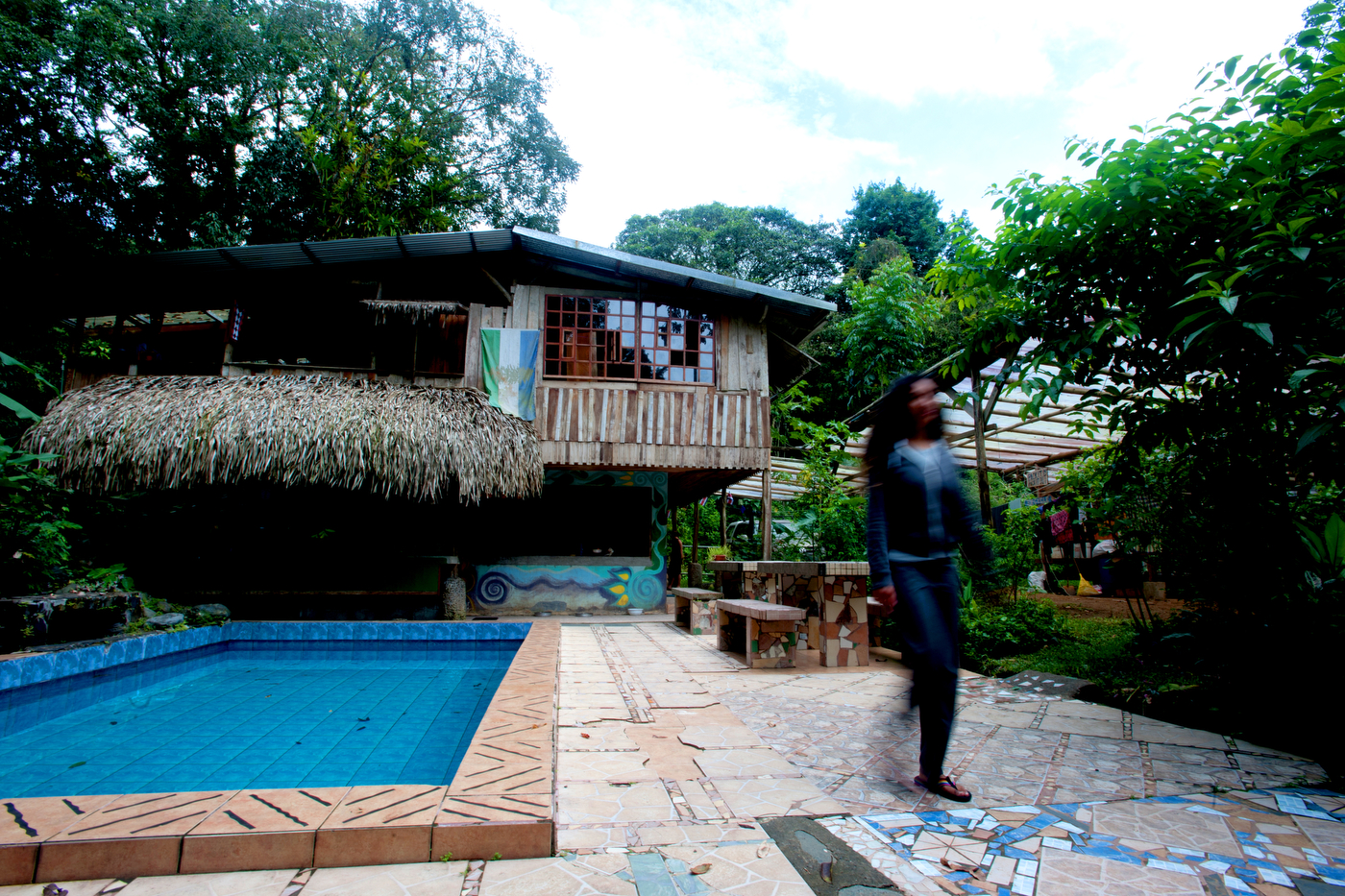
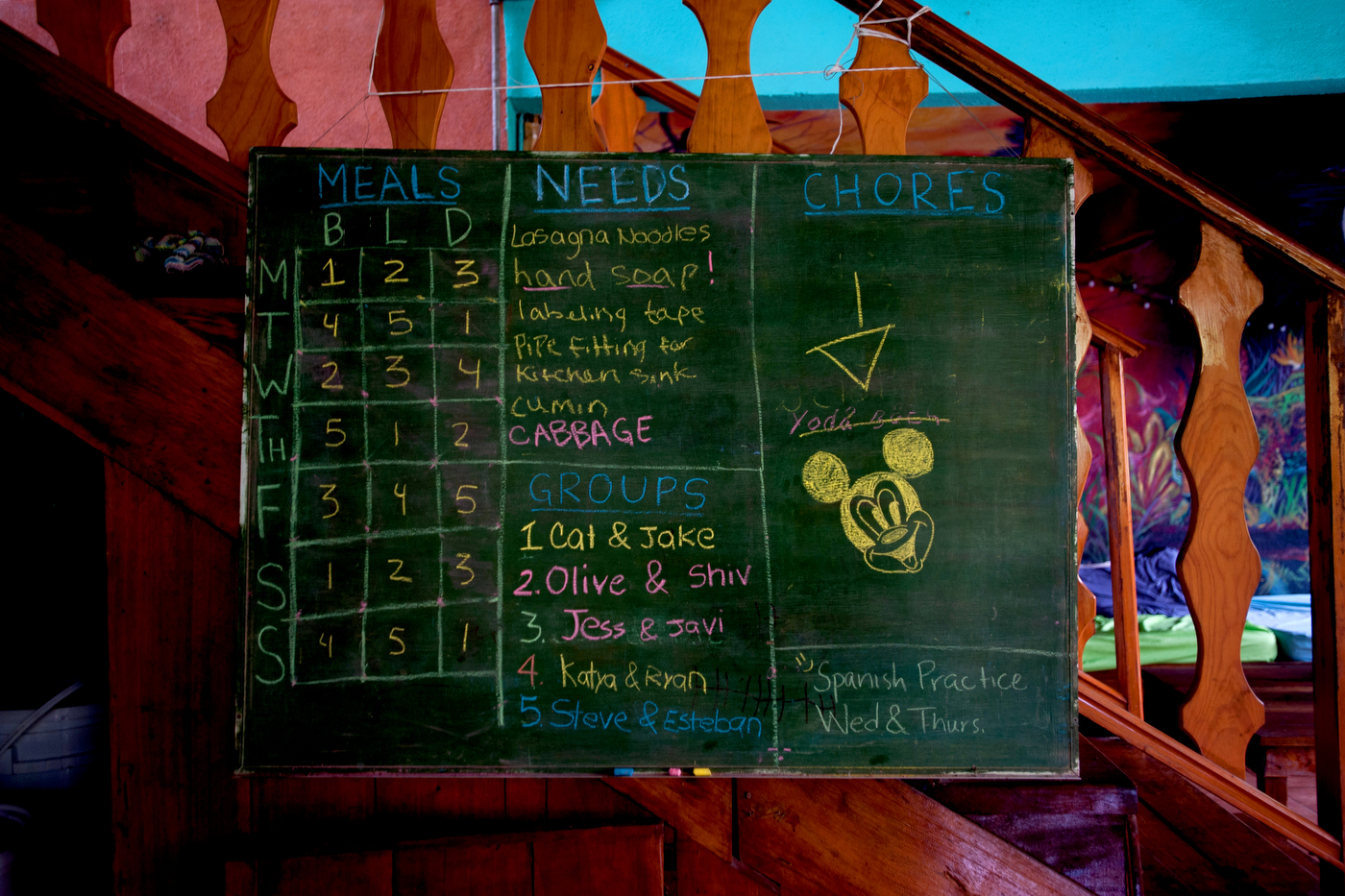
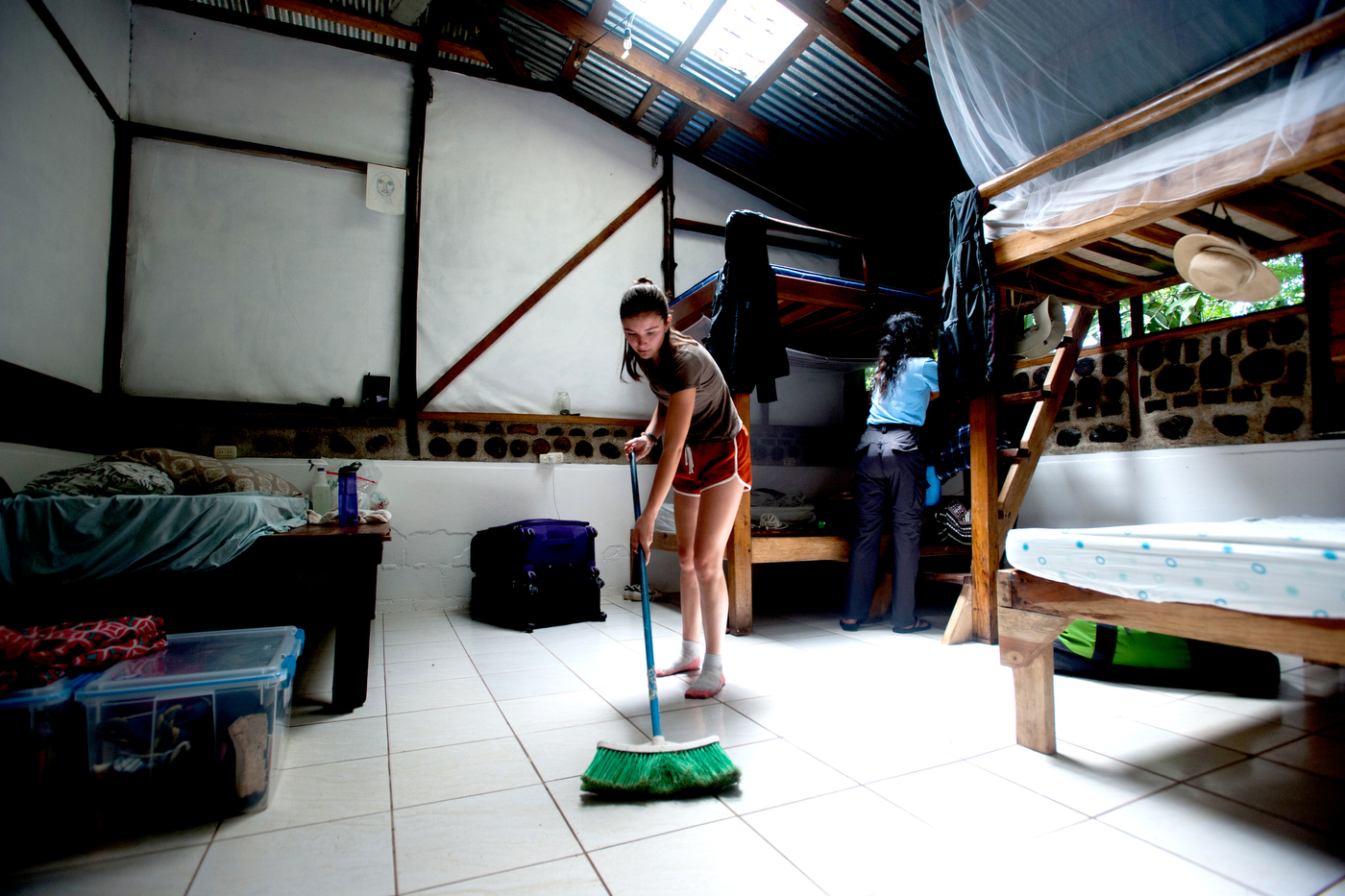
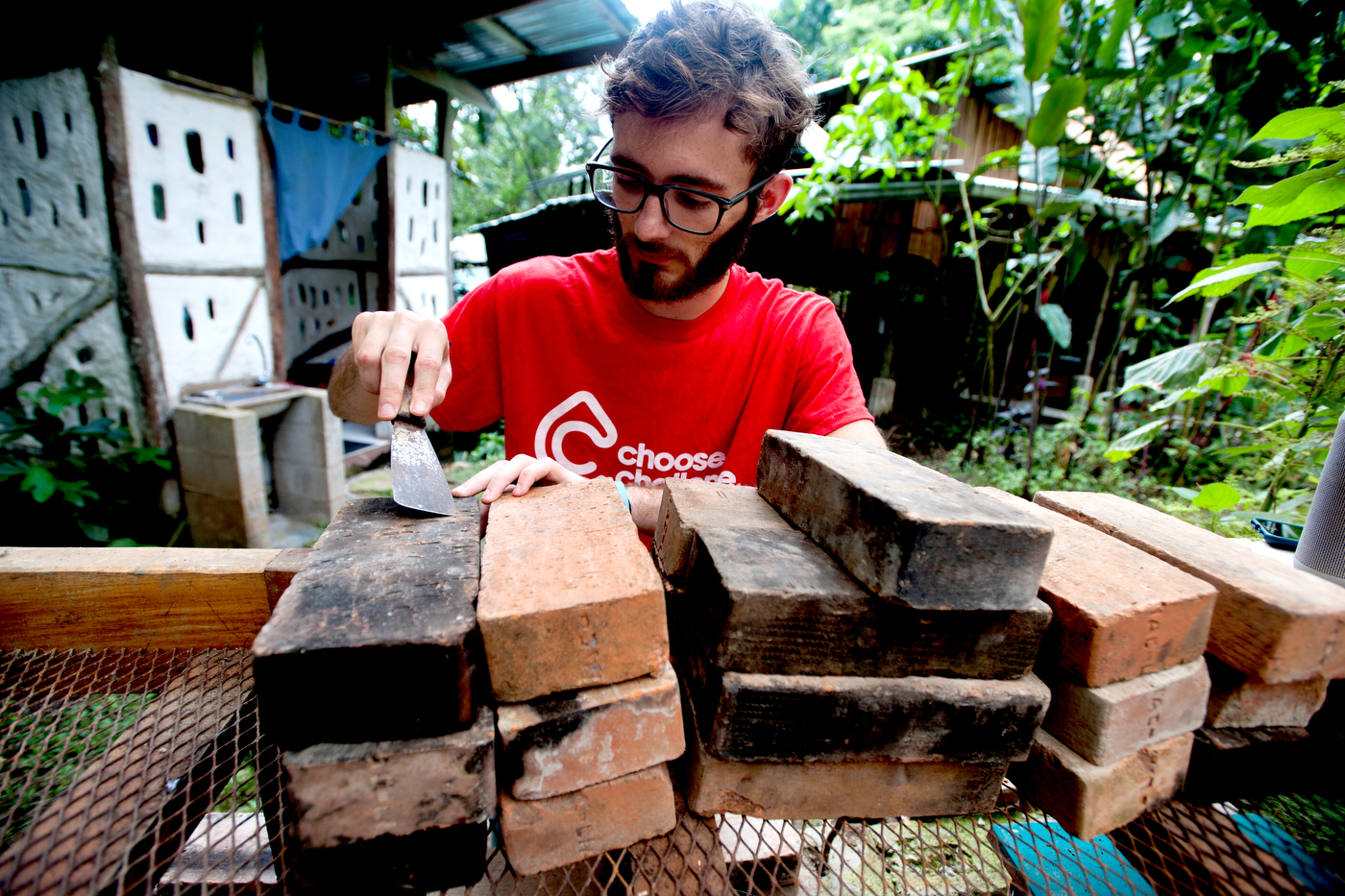
The challenges are never-ending, but the rewards are significant, too.
“It’s great that people can come here and learn from this experience and know that they are deeper in knowledge of how different cultures work,” said Esteban Jiménez Contrerar, farm and operations coordinator at Blacksheep, who grew up in Colon, Costa Rica, a 45-minute drive from the farm.
A life in agriculture may appear quiet and peaceful, but Slevin has recognized the need for grit, creativity, and problem-solving. At Northeastern, she was immersed in the science of nature; here, on co-op, she has learned how to plant and nurture the subjects of her studies, amid the surrounding mountains that rise and fall in all directions, splashing the vista with every shade of green that nature can imagine.
The thirsty roots of banana plants, including this first one that she is planting now, serve as small anchors against the erosion incurred by the region’s heavy rains.
Katya Forsyth, an international relations major at Northeastern, joins Slevin in digging a second hole around the sapling.
“That’s to loosen the soil and give the roots more chance to grow and spread out,” Slevin says as she stands sweating in mud-covered boots. “I didn’t know any of this six months ago.”
Slevin poses for a picture alongside her banana sapling, brainstorms with Forsyth about how they will plant their remaining ones over the next few days, and then heads back to the farm in advance of the daily rains that will pound the mountain.
Previously, Slevin interned at BestBees, a cooperative in Boston, where she learned the important role that pollen plays in a healthy ecosystem. She has applied that understanding to her work in this coastal mountain range, where the bright red flowers of her banana trees attract pollinators and produce biomass that can be transformed into mulch for the surrounding cacao trees.
She is returning to a farmhouse where the lone clock is stuck permanently at 3 p.m.
As much as she loves Parsippany, New Jersey, where she was raised, and Boston, which has been her home away from home at Northeastern, Slevin has discovered her own roots over these last several months. As she hikes back to the farm, taking in the view of the darkening clouds that portend lightning and thunder, and the glorious valley that unspools hues that are ever changing, she cannot imagine living in a city again.
For media inquiries, please contact media@northeastern.edu.





